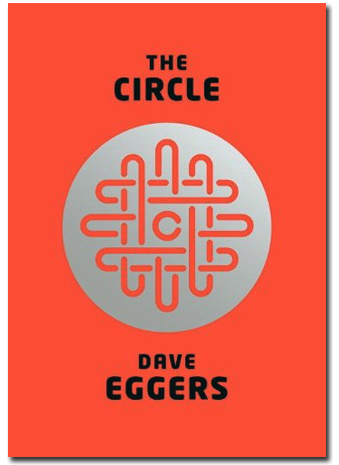The Circle, book review: This way to the dystopia of your dreams


There's a thing that goes on when you're being recruited by a cult called 'love bombing'. Perhaps you're at a crossroads in your life when all sorts of things are scary and confusing, and along come these people who embrace you and fill you with light. Soon you find yourself subsumed in a whirlwind of activities, getting no sleep, barely eating, but part of this wonderful thing with a mission. One day, far along the road, you wake up and realize you're exhausted, starving and cut off from everyone else you know. Plus, they've got all your money. How can you dissent now?
To anyone who knows this, the opening chords of Dave Eggers' novel, The Circle are plenty alarming. Recruited by a friend already working there, Mae Holland, 24, arrives to take up her job at The Circle, a multiply dominant internet company. She will be a lowly 'customer experience' cog, but working at the most important and innovative company on earth has to beat her former boring, hateful job at a utility company, which she took to pay off her student loans.
Ah, life at rich internet companies! This is the beautifully padded cell in which Mae comes to work: game rooms and myriad food-filled kitchens, architecture, revered and impassioned CEOs, parties, on-site dorms — all masking the relentlessness of American corporate life. Like Joanna (played by Jennifer Aniston) in the millennial anthem movie Office Space, Mae is tormented by voluntary-but-mandatory requirements whose exact details no one will specify. Thirty pieces of flair? A hundred thousand 'zinger' likes? The best cults also know this rule: keep them insecure and off-balance, and they will be hooked on desperately trying to please.
Assimilation, with stumbles
Rapidly, Mae is assimilated. We watch nervously as she signs without reading myriad forms on arrival and tech support uploads the contents of her personal laptop and phone onto shiny latest-model replacements and syncs them to The Circle's cloud. She is signed up for the company's fortnightly medical checkups (prevention saves money!), and the medic clasps a high-tech bracelet around her wrist to monitor and report her physical parameters. As her cubicle progressively sprouts four, six, seven screens, her feedback score from customers debuts at 97 — excellent for a beginner, but she'll need to get that up to 100. (A skeptical aside: who are all these customers who not only fill out feedback surveys but answer follow-up questions?)
The best cults also know this rule: keep them insecure and off-balance, and they will be hooked on desperately trying to please.
There are stumbles. Mae's supervisor mediates a complaint by a co-worker she's never met: he's deeply hurt that she didn't attend his Portugal party. Why is she rejecting him? Haltingly, she finds an acceptable explanation. But a few weeks later, she's in trouble again: why is she rejecting the community by disappearing at weekends? Doesn't she realize that thousands of them, like her, go kayaking? And why didn't she tell them about her father's multiple sclerosis and insurance troubles? We can put him on the company plan! Why is she so selfish as not to share these things? Privacy is theft!
The joker in the pack is the cheap, light, ultra-high resolution, all-seeing camera The Circle launches. As they set off a competition among politicians to 'go clear', the novel takes on the aspect of a worked example of David Brin's 1998 book The Transparent Society. Will the day come when Mae longs for that musty, burlap-covered utility company job? Or will the 'filter bubble' of groupthink smother all opposition? This way to the dystopia of your dreams.